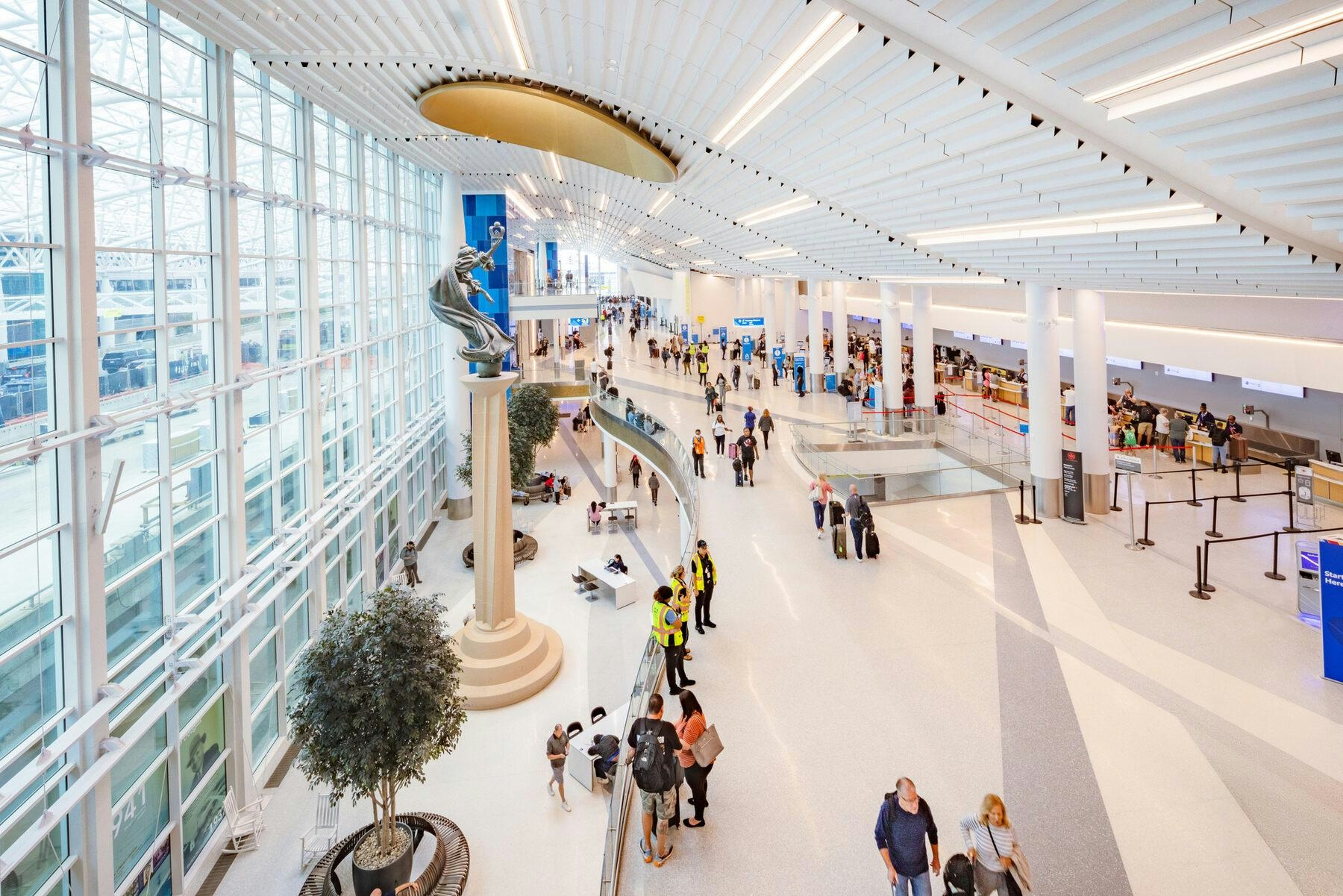AeroGenie — Your Intelligent Copilot.
Trending
Categories
Designing AI-Enabled Airports for Seamless Passenger Experiences

Designing AI-Enabled Airports for Seamless Passenger Experiences
The aviation industry is undergoing a profound transformation, moving beyond the traditional focus on speed, safety, and efficiency to embrace personalized passenger experiences. For decades, airports have prioritized operational throughput, often at the expense of individual traveler needs. However, advances in artificial intelligence (AI) are now reshaping airports into intelligent, responsive ecosystems capable of anticipating and adapting to the unique requirements of each passenger.
The Vision of a Connected Airport
A truly connected airport transcends the mere presence of digital kiosks and information screens. It represents an integrated environment where systems, personnel, and services work in concert to deliver real-time responsiveness and personalized interactions throughout the traveler’s journey. This dynamic adaptation aims to enhance convenience and reduce friction at every stage.
Envision an airport where parking spaces are automatically reserved based on a passenger’s flight itinerary, security procedures are expedited through biometric authentication, and wayfinding signage adjusts according to an individual’s walking pace. Dining options could be recommended based on dietary preferences and proximity to the gate, while boarding passes and directions update instantly to accommodate tight connections. Such innovations are beginning to take shape in airports around the world, reflecting a growing commitment to leveraging AI for improved passenger experiences.
Industry data underscores this momentum. Surveys indicate that 95% of aviation leaders are actively exploring AI applications to enhance the passenger journey. Meanwhile, the International Air Transport Association projects a record 4.99 billion travelers by 2025, intensifying the need for smarter, more efficient airport operations.
Challenges in Implementing AI Solutions
Despite the promising potential of AI, several significant challenges must be addressed to realize fully AI-enabled airports. Foremost among these is the imperative to safeguard privacy and data security, as airports increasingly collect and analyze vast quantities of personal information. The integration of advanced AI systems with existing legacy infrastructure presents additional technical and financial complexities.
Public apprehension regarding AI’s role in decision-making—particularly concerning transparency and data usage—poses another hurdle. Building and maintaining passenger trust will require clear communication and robust governance frameworks. Market responses to AI adoption are mixed; while many industry players view AI as a critical tool for operational efficiency and service personalization, others remain cautious, opting to maintain traditional methods to mitigate risks associated with AI integration.
The Path Forward
Current AI applications such as chatbots, facial recognition, and automated kiosks have become commonplace in many airports, marking important initial steps toward enhanced passenger experiences. However, achieving a truly seamless and personalized journey will necessitate deeper collaboration across the travel ecosystem and more sophisticated utilization of existing data assets.
The realization of AI-enabled airports hinges not only on technological innovation but also on careful attention to privacy concerns, system integration, and public trust. As airports continue to evolve, the overarching priority remains clear: to deliver safe, efficient, and genuinely personalized travel experiences for every passenger.

Emirates Unveils Cabin Design for New Boeing 777X

Eighteen Years On, the Airbus A380 Remains Central to a $34 Billion Airline

How a boom in luxury airline seats is slowing down jet deliveries

Navitaire Outage Attributed to Planned Maintenance

DigiYatra Debuts Outside Aviation at India AI Impact Summit

Vietnam Orders Strengthen Boeing’s Commercial Outlook

Airbus Signals Uncertainty Over Future A400M Orders

JobsOhio Awards $2 Million Grant to Hartzell Propeller for Innovation Center

Collins Aerospace Tests Sidekick Autonomy Software on YFQ-42A for U.S. Air Force CCA Program

How the Airbus A350-1000 Compares to the Boeing 777
